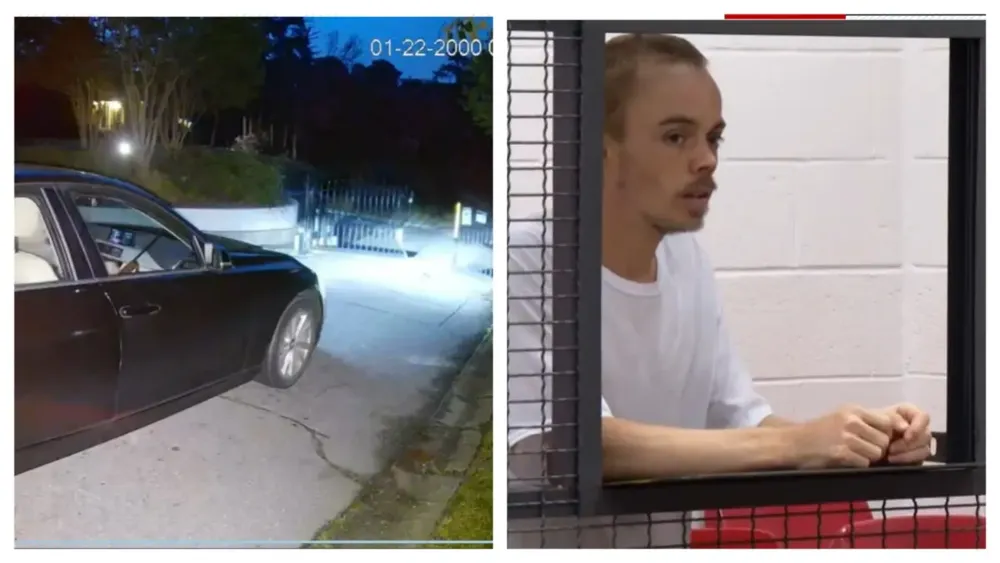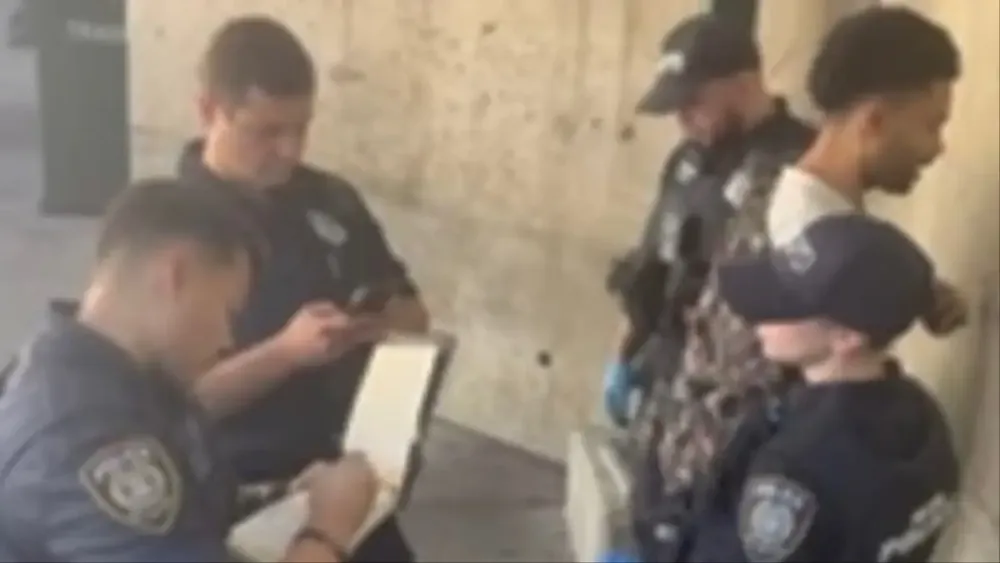‘Keep Running, Boy!’: White Gunman Shot at Black Neighbor He Spotted ‘Standing in the Bushes’—Now Pressure Mounts for South Carolina Hate Crime Law

A Black man who was the victim of a hate crime in South Carolina over the summer is demanding that the state enact a hate crime law. Jarvis McKenzie said he was waiting for a ride to work around 6 a.m. on July 17 when a white man in a car aimed a rifle at him, then opened fire, while yelling, "Keep running, boy!" Jonathan Felkel is charged with assault and hate crime after shooting at Black jogger. (Credit: News19 Video Screengrab) Surveillance video caught the moments the suspect, Jonthan Felkel, parked his car in front of a gated community and fired one shot at McKenzie after spotting him. Felkel was subsequently jailed on a $1 million bond for the attack and charged with hate intimidation, assault, and battery of a high and aggravated nature, and possession of a weapon during a violent crime. He was the first man to be charged under Richland County’s new hate crime ordinance that county officials passed in June. When he was arrested, Felkel admitted to detectives that he targeted McKenzie because of his race after he saw him "standing in the bushes." ‘There’s No Excuse’: White Texas County Worker Joins Unemployment Line Because She Thought Replacing a Racist Slur with ‘Obama-Rigged’ Was Acceptable “It was a Black man in a white shirt, just standing out there at 4 in the morning, and I saw him there and he was by himself so I was really going to do something at first … Well, I was going to shoot at him. I was. I was going to shoot at him," Felkel reportedly told police. Like Richland County, other localities in South Carolina have also passed their own hate crime statutes, but the state itself has no hate crime law. McKenzie said he wants that to change. Even though he was not physically harmed in the shooting, he says he's traumatized by the terrifying moments of that attack. “It’s heartbreaking to know that I get up every morning. I stand there not knowing if he had seen me before,” McKenzie said. “I feel like somebody is watching me. I feel like I'm being followed. It spooked me.” McKenzie says he and Felkel live in the same gated community. For a year, McKenzie stood outside the neighborhood at 5:30 a.m. to wait for his supervisor to pick him up for a carpool ride to work. Since that everyday routine was disrupted by Felkel's unsettling actions on that July morning, McKenzie says each trip outside his home is now marked with fear and anxiety. Calls for statewide hate crime legislation mounted in 2015 after the tragic shooting at Emanuel AME Church in Charleston, where white supremacist Dylann Roof fatally shot nine Black parishioners. Unlike counties, where hate crime ordinances can only be enforced as misdemeanors that sentence offenders to mere weeks in prison, a state hate crime law would add years to a conviction, according to the Associated Press. However, state lawmakers have yet to budge on advancing the current state hate crime bill from the South Carolina House to the Senate. The summer of intense racial strife in 2020 pressured House legislators to pass a bill in 2021, but it stalled in the Senate. "The subliminal message that says if you’re racist and you want to commit a crime and target somebody for their race, gender, ethnicity, sexual orientation, or whatever it is, you can do it here,” said McKenzie's attorney, Tyler Bailey. Richland County Sheriff Leon Lott said he advocated for a hate crime ordinance in his county, stating that protections need to be in place for people targeted because of an offender's bias. “It’s common sense. We’re making something very simple complicated, and it’s not complicated. If you commit a crime against somebody just because of the hate for them, because of who they are, the religion, etc., we know what that is,” Lott said. Felkel faces a maximum of 20 years in prison if he's convicted of all charges.

